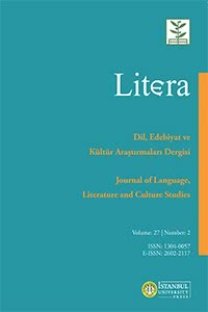Stevenson, G. (2020). Anti-Humanism in the Counterculture. Cham, Switzerland: Palgrave Macmillan. 223 pages. (ISBN 978-3-030-47759-2)
Öz Certain authors of the twentieth century have without a doubt fallen out of popularity in our twenty-first century, depending on which socio-critical approach one brings to their texts. Among the list, we might include Henry Miller, Jack Kerouac, Allen Ginsberg, William Burroughs, and Norman Mailer—the primary subjects in Guy Stevenson’s Anti-Humanism in the Counterculture. All five of these men have had their share of criticisms brought against them, in particular for their words involving gender discrimination, racial bias, and anti-Semitism. In any discussion concerning these authors, we cannot put these points aside, Stevenson states, and he goes to significant length to ensure that readers are cognizant of the three areas of legitimate criticism against this group. Keeping these points in mind, Stevenson unveils what he considers is a fresh approach to understanding these individuals and the counterculture movement that grew around them. The presence of Henry Miller may seem misplaced with the other post-war novelists, but Miller’s groundbreaking publications provides the basis for Stevenson’s claims of an anti-humanistic theory stretching through this group’s literature. Across six lengthy chapters, Stevenson examines perspectives on the “faith in the human potential for progress” (3) that, it is argued, takes a variety of unexpected shapes in each of these writers’ quest for individual enlightenment. Anti-Humanism in the Counterculture is a complicated text that attempts to pursue a new avenue into the complex cultural milieu surrounding Kerouac, Ginsberg, and Burroughs. The chapters on Miller and Mailer, while in-depth and essential, serve as opening and closing frameworks for the main premise, as the material of Miller and Mailer enables Stevenson to emphasize the ideological trajectories—both forward-thinking and patriarchally hindered—of the three powerhouses of the Beat Generation. Overall, the result is not as rewarding as anticipated, as the argument gets lost along the way.
Anahtar Kelimeler:
Henry Miller, counterculture, Allen Ginsberg, Beat Literature, Jack Kerouac, William S. Burroughs, Modernism, Post-Modernism
___
Stevenson, G. (2020). Anti-Humanism in the Counterculture. Cham, Switzerland: PalgraveMacmillan.- Yayın Aralığı: Yılda 2 Sayı
- Yayıncı: İstanbul Üniversitesi
Sayıdaki Diğer Makaleler
Çeviri Odaklı Transdisipliner Pratikler: Organizmalardan Artırılmış Veri ve Çeviri Heykellerine*
Emine DEMİREL, Zeynep GÖRGÜLER
Todd Phillips’in Joker Filmine Jungcu ve Nietzscheci bir Yaklaşım
The Shattering Symmetries between the Imaginary and the Symbolic in Carter’s The Magic Toyshop
The Nightmarish Odyssey of Women Stuck in the Dystopian Lottery: Sophie Mackintosh’s Blue Ticket
